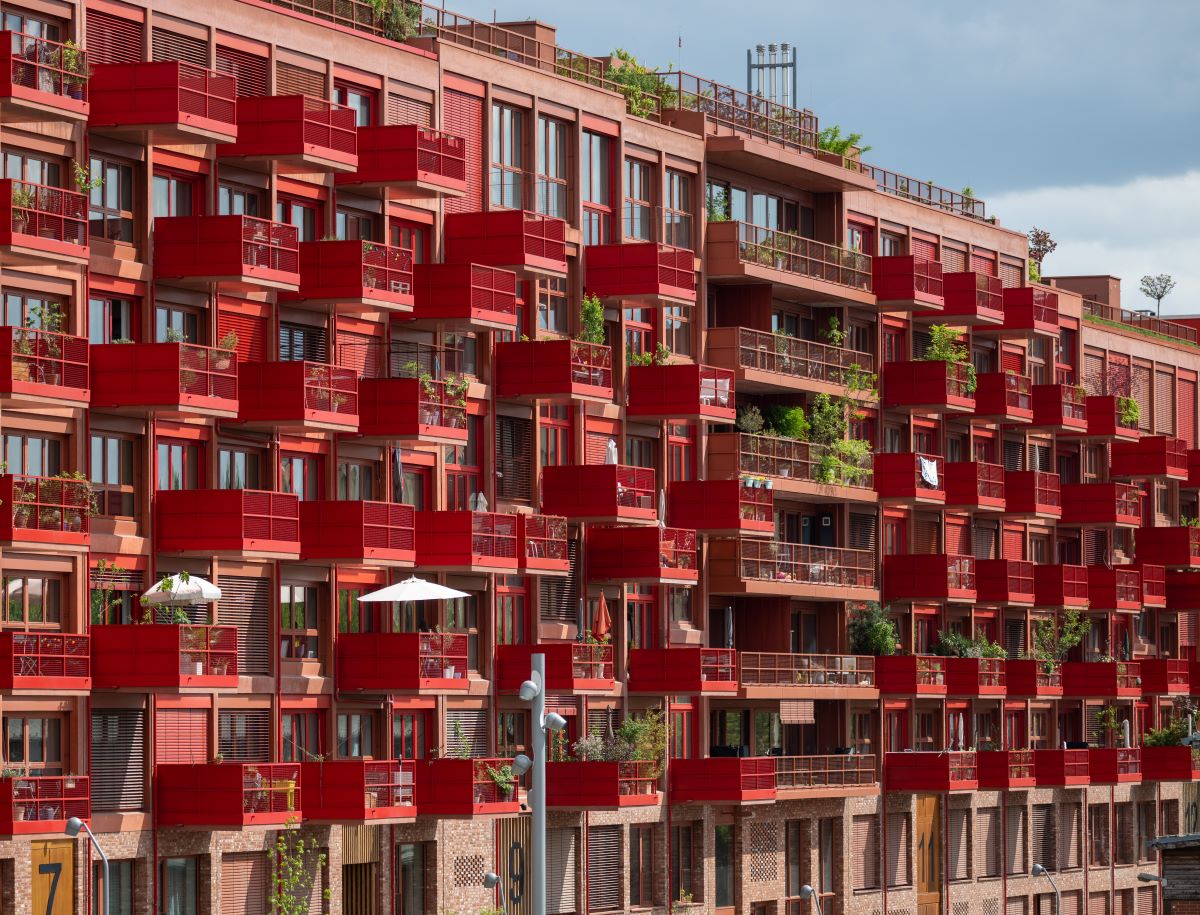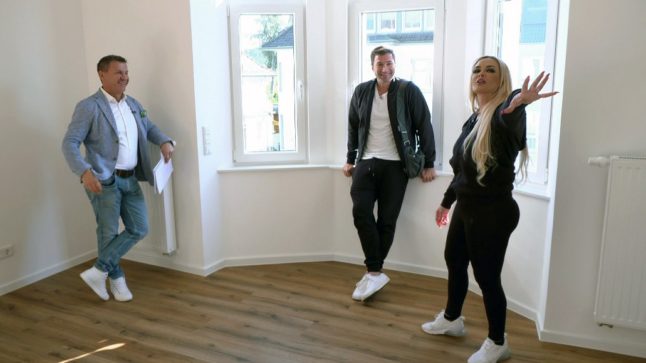Germany’s rental price brake will be extended until 2029, representatives of the traffic light coalition explained on Wednesday.
The rent brake (Mietpreisbremse) effectively prevents landlords from setting rents at rates that would be considered ‘unreasonable’ by the law.
So tenants in Berlin, North Rhine-Westphalia, Hamburg and other areas with tight housing markets can continue to invoke the rent brake when renting apartments beyond 2025.
What is the rental price brake?
The rental price brake is a nationwide law that came into effect in 2015, and works as a form of rent control in dense housing areas – stipulating the maximum amount of rent a landlord can charge.
According to the law, cold rent cannot be set more than 10 percent above the average rent for comparable units in the same neighbourhood, which is recorded in the regional rent index (Mietspiegel).
Under the Mietpreisbremse, if a landlord charges more than the permitted rent, the tenant is entitled to a rent reduction.
READ ALSO: EXPLAINED: Why renting is still cheaper than buying in Germany
Helping to ensure that renters aren’t overcharged are legal service providers like Conny, that help tenants’ to decrease their rents if their landlord has surpassed legal limits.
Conny’s CEO, Dr. Daniel Halmer, says that the rental price brake is the most powerful instrument available to keep rents down and buy time until more affordable housing is available.
It’s not a perfect form of rent control
However, the rent brake’s power is limited in some important ways. The current law doesn’t come with any real consequences for landlords who break it, for instance, beyond needing to reduce rents to the legal rate and reimburse tenants for the excess that was collected.
In the capital city’s notoriously tight housing market, landlords can easily net thousands of euros per rental each year by overcharging.
Asked how often landlords are caught ignoring the rent brake, Halmer told The Local, “We see a violation rate of 75 percent in Berlin. And that’s pretty consistent over the last seven years.”
Halmer says the high violation rate isn’t surprising: “If you have a law that has no sanction in case of violation, don’t be surprised when people break that law.”
He added that when Conny wins rent reductions for clients, they pass their legal fees onto the landlords. When Conny doesn’t win a case, tenants are not charged.
Does the rent brake save renters money?
When the rent brake was applied in 2015, it was largely celebrated by renters and tenant advocacy groups as a strong and necessary step to support renters in a country with an affordable housing shortage.
Three years after the rent brakes adoption, The Economist published a story called “Why Germany’s rent brake has failed.” The article suggests that rents in central Berlin shot up by almost ten percent immediately following the introduction of the rent brake whereas they had previously been rising around two percent annually.
“After the law was announced, some landlords took the opportunity to increase their rents before the legislation took effect,” Halmer said.
He added that the rent price hike around 2015 was a one-time effect: “For tenants this law is totally a good thing. And there’s no other no other way to look at it.”

For its part, the German Tenants’ Association (DMB) wants to strengthen the rent brake. “The rent brake has numerous exceptions and loopholes, which urgently need to be closed in the course of the extension,” DMB President Lukas Siebenkotten told Berliner Zeitung.
Currently the rental price brake does not apply to: new apartments (rented for the first time after October 2014), apartments that have been modernised, apartments rented for temporary use (less than one year), rental contracts signed before the law came into effect, and apartments where the previous rental price had already been set too high.
How does the rent brake extension affect tenants and landlords?
The agreement to extend the rental price brake is exactly that – it will extend the Mietpreisbremse law as is until 2029. It does not imply any changes to the law at this time.
So tenants currently protected by the rental price brake can continue to enjoy that protection, at least for five more years. On the other hand, tenants living in rentals that don’t qualify for rent controls under the law will remain unprotected.
The same applies to landlords – properties that are affected by the law will see their rent price caps remain.
READ ALSO: What are the cheapest and most expensive places to live in Germany?
While the decision to extend the price brake was agreed by the SPD and FDP parties at the federal level, the extension hasn’t yet worked its way into legislation. Up next the extension agreement will need to be written up as a bill and then passed by the Bundestag. Then it is passed onto the states, which are ultimately responsible for how the law is applied locally.
Before the extension, rental price brakes were expected to expire in North Rhine-Westphalia, Hamburg and Berlin in 2025.
Housing and owners associations are not happy about the rent brake
Beyond renters and the German Tenants’ Association, not everyone is happy about the extension of the rental price brake.
In fact, the home and land owners’ association Haus und Grund wants to sue against it. President Kai Warnecke said in Bild that “The Federal Constitutional Court only accepted the first rent brake because it was limited to five years…”
In response, German Building Minister Klara Geywitz (SPD) told RBB24 inforadio that she assumes the Ministry of Justice has examined the extension “sufficiently thoroughly”.
In 2019, the judges in Karlsruhe ruled that the rent brake was not constitutionally objectionable. The rules introduced in 2015 did not violate the guarantee of property, freedom of contract or the general principle of equality, the court found at the time.
Germany’s housing industry association (GdW) told Berliner Zeitung that, “It is positive that the already very restrictive German tenancy law is not to be tightened…” Speaking on behalf of housing companies, the association argues that restricting rents intensely could reduce housing companies’ ability to invest in energy-efficient and age-appropriate renovations.
In-line with these concerns, the current law includes an exception for properties that have been comprehensively modernised.



 Please whitelist us to continue reading.
Please whitelist us to continue reading.
Member comments